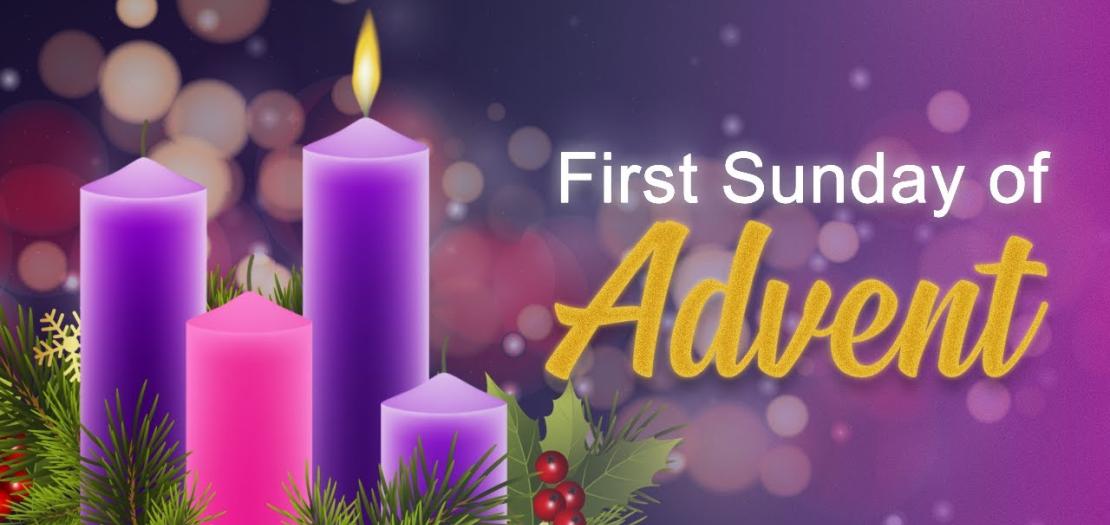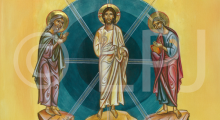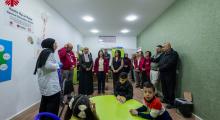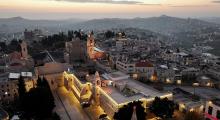Issued by the Catholic Center for Studies and Media - Jordan. Editor-in-chief Fr. Rif'at Bader - موقع أبونا abouna.org

Following is the text of the meditation by His Beatitude Cardinal Pierbattista Pizzaballa, Latin Patriarch of Jerusalem, for the first Sunday of Advent dated November 30, 2025:
Advent begins with a very powerful image and an important lesson.
In today's Gospel, (Matthew 24:37-44) Jesus speaks of his second coming, the one that will bring history to its completion. He does not say when it will happen, but he sets his listeners on the right path so that they may be ready to meet him.
First, he tells them how they should not behave. They should not behave like Noah's contemporaries, who in the days before the flood were so caught up in their daily activities that they did not notice that something around them was happening: they did not notice anything, and when the flood came, it swept them all (“they were eating and drinking, marrying and giving in marriage, up to the day that Noah entered the ark. They did not know until the flood came and carried them all away.” (Matthew 24:38-39. They were not doing anything obviously wrong; on the contrary, they were eating, drinking, and marrying. But something is missing.
Their ability to stop, and take a break, is what’s missing, because that enables them to notice that something is happening.
If life runs without pauses, without silence, everything slips away and even the coming of the Lord can go unnoticed. The Bible is full of people who stop and notice what is happening.
But the first to do this is God himself. The story of creation (Genesis 1) tells us that every time God created something, he immediately stopped, called it by name, blessed it, and recognized that what has come from his hands is good. But after creating everything, he stops for a whole day and consecrates this day to the art of stopping, by setting a limit to his own doing, to his own power (“God blessed the seventh day and made it holy, because on it he rested from all the work he had done in creation” - Genesis 2:3). He does not stop because of he got tired, but because of fullness, because of love: stopping and looking is the first way to love someone.
So, the first step to take during Advent is to pause and notice what is happening around us.
But what, specifically, should we notice? The paradoxical element of this passage is that, in reality, there is nothing to notice.
Unlike other apocalyptic passages, we do not find any mention of earthquakes, plagues, signs in the sky... On the contrary, the Lord will come like a thief in the night, (Matthew 24:43), that is, like someone who tries to make sure that no one notices him (“if the master of the house had known the hour of night when the thief was coming, he would have stayed awake and not let his house be broken into”).
Vigilance, therefore, is the ability to grasp and welcome the salvation that is given to us and is usually hidden beneath the humble and contradictory appearances of everyday life. It does not consist so much in knowing how to grasp the exceptional signs that herald Hhis coming, but in the ability to recognize, to see with new eyes what is already present. It is the gaze of the disciples, of the risen ones: a sacramental gaze, which sees in everything that happens a reflection of the gift that God daily gives to all.
It is also a matter of learning the art of not falling asleep in routine, and of paying attention not so much to what happens outside of us, but to what happens and moves within us. It is this attentiveness, in fact, that keeps the heart alert, awake, and ready to recognize the Lord’s work within each person’s life.
Finally, it is a vigilance that teaches us not to put off conversion: we must not wait for something extraordinary to happen before we begin to seek the Lord again.
Ordinary things, such as relationships, eating, drinking, and working, are enough to become the space where by keeping our hearts attentive, we open ourselves to the Life of God, to His daily coming to us.







